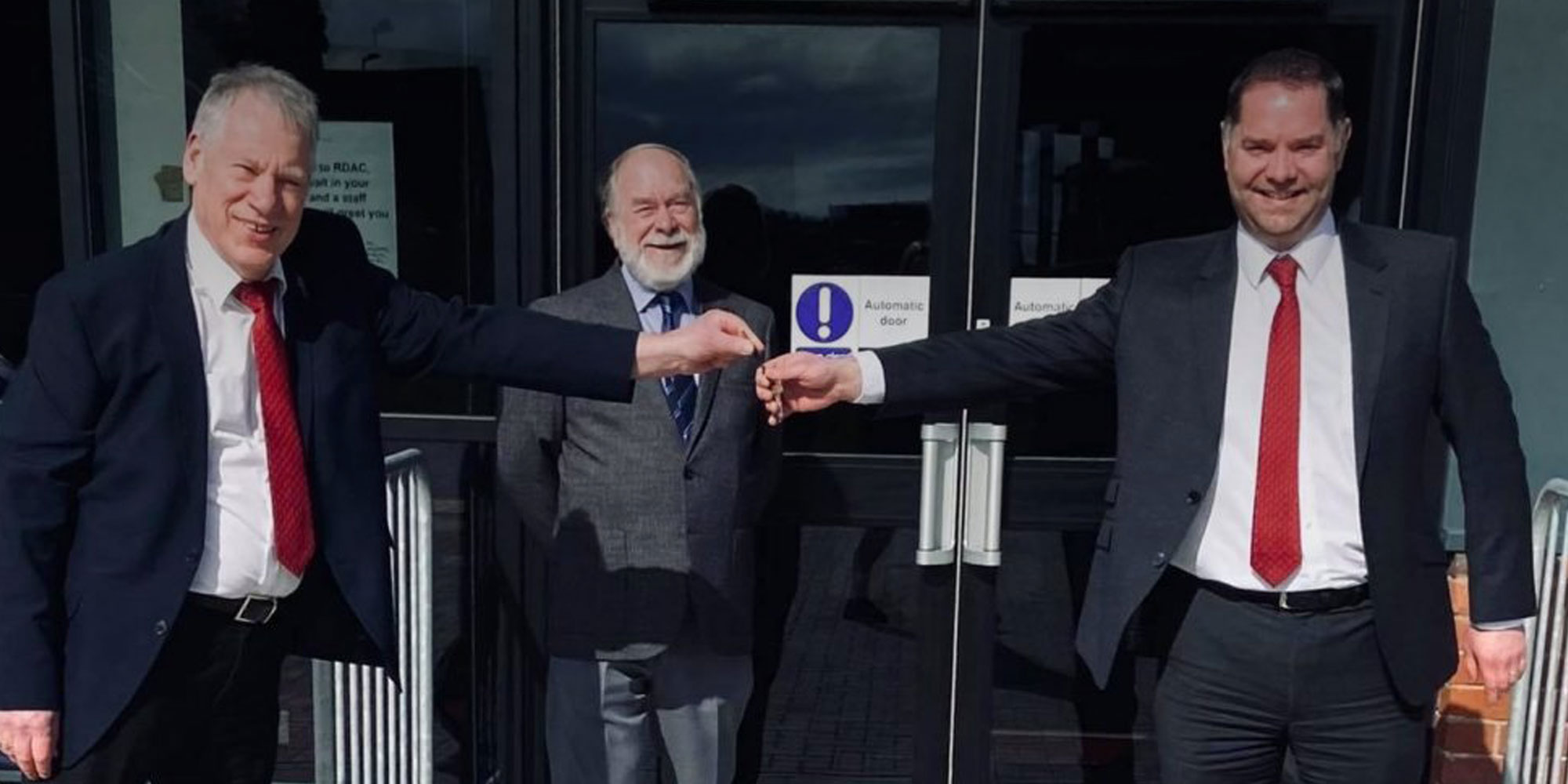And what an extraordinary legacy he leaves behind!
In 1983, he was working as a driving instructor when he was approached by a disabled client who wanted to learn to drive. At the time, there were very limited services for disabled people to learn to drive, and something he was unable to provide himself. In the light of this he decided to go on a training course to learn to teach disabled people to drive at the Queen Elizabeth Foundation for Disabled People. He then went on to teach disabled people to drive in Birmingham, having bought a car and had adaptations fitted so that it would be suitable for a variety of disabilities to be taught (left foot accelerator, infrared controls and push pull controls). In 1990 he responded to an advert for driving instructors to do driving assessments for disabled people, on a voluntary basis, once a month.
Then in 1993 he was employed by the NHS at Moseley Hall Hospital alongside an OT and an administrator. A few years later he applied for the manager post of the service (and was successful) as they now had other staff and the service was run 5 days a week. Colin felt passionate about his role and the need for services to be provided to people closer to home, so they were more accessible and made connections with Cannock hospital and was able to set up an outreach centre. This was run one day a month by an OT and one of the driving instructors. At the time there were 7 driving assessment centres across the UK.
The service then moved, in the early 2000s, to West Heath Hospital due to expansion and the demand for 200 driving assessments a year. They also acquired the Oxford centre in 2005, and in 2007 the NHS announced that the land upon which the Centre was based was to be sold. Colin managed to gain funding for new premises at Network Park and to instigate the setting up of a registered charity to develop the service further and expand the area of coverage.
RDAC had been born!
He has since then continuously opened new outreach centres across the UK where there has been a need using his business acumen to get them up and running and financially stable. Each one has had its challenges, the largest being a new satellite centre in Manchester in 2018 which achieved 500 assessments in its first year. He leaves the service with operating outreaches at Cannock, Hull, Scunthorpe, Oxford, Accrington, Wolverhampton, Leicester, Northampton, Stoke Mandeville and Aylesbury and Shrewsbury.
As well as geographic expansion he has also broadened the services offered to include driving assessments for lorries, buses and motorbikes, Bugzi, passenger and access assessments for adults and children who are disabled, TRyB4UFly, mobility scooter and wheelchair assessments, a Transport HUB, and High-tech vehicle assessment. The centre now conducts nearly 4000 assessments a year and has moved to purpose-built accommodation in Solihull.
We wish you all the best for the future and can’t thank you enough for everything you have done for the industry!
Good luck Colin! 💙
